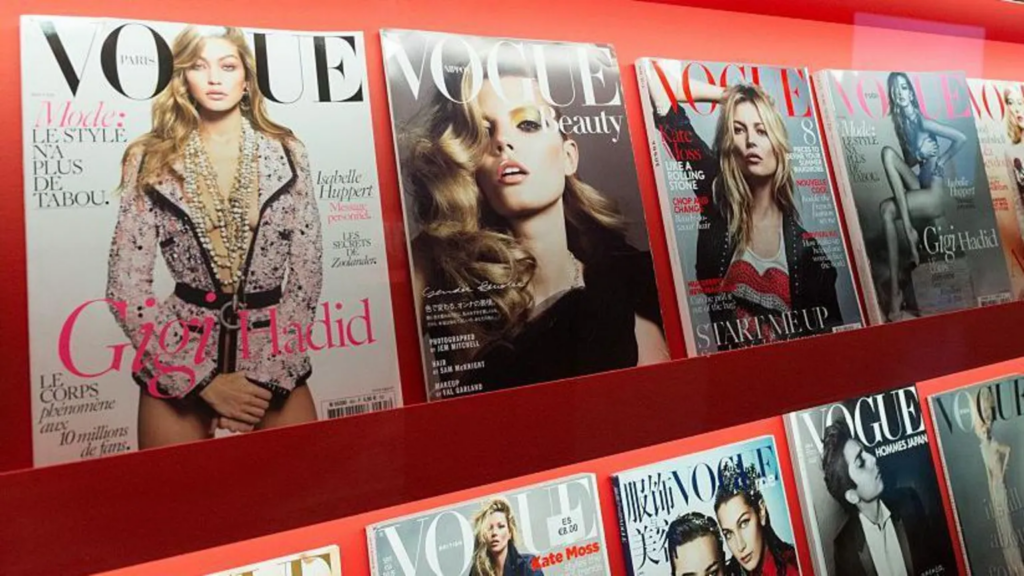
Audio By Carbonatix
OpenAI and global magazine giant Condé Nast have announced a partnership to allow ChatGPT and its search engine SearchGPT to display content from Vogue, The New Yorker, GQ and other well known publications.
The multi-year deal is the latest such agreement struck by OpenAI with major media firms.
The content produced by media organisations is sought after by technology companies that use it to train their AI (Artificial Intelligence) models.
Some media firms including the New York Times and the Chicago Tribune have resisted this and taken legal action to protect their content.
OpenAI and Condé Nast did not disclose the financial terms of the agreement.
“We’re committed to working with Condé Nast and other news publishers to ensure that as AI plays a larger role in news discovery and delivery, it maintains accuracy, integrity, and respect for quality reporting,” said Brad Lightcap, OpenAI's chief operating officer.
News media organisations have seen their business models challenged by the rise of social media and other digital platforms.
"Our partnership with OpenAI begins to make up for some of that revenue, allowing us to continue to protect and invest in our journalism and creative endeavours," said Condé Nast's chief executive officer Roger Lynch.

OpenAI launched its prototype AI-powered search engine, SearchGPT, last month.
In a statement at the time, the company said it was gathering feedback and insights from its partners in the news industry to develop the new platform.
Others that have partnered with the AI firm include Time Magazine, the Financial Times and the Associated Press.
AI chatbot technology is seen by many analysts as a key part of internet search engines in the future.
Search engine giant Google has also been racing to add AI-powered tools to its products.
While other AI companies are pursuing search products, Google remains by far the dominant player, claiming more than 90% of the global market.
The changes to how search engines respond to queries - offering conversational paragraphs instead of directing users to links - have also raised alarm among news media firms, many of which rely on search traffic for audiences and revenue.
Last year, the BBC said it was taking steps to prevent content on its websites from being used by OpenAI and other firms without permission.
The blog post also said the BBC would explore opportunities offered by generative AI "to deliver more value to our audiences and to society."
Latest Stories
-
Beyond rhetoric: NDC elevates reform committee to excise the “canker” of vote-buying
3 minutes -
Old Tafo MP reveals “looming scandal” at COCOBOD
9 minutes -
Community cries for help over failing Abɔgyesɛ bridge
14 minutes -
Sports Minister pledges two months’ salary to Sports Fund
15 minutes -
COMAC and CBOD hint at strike over illegal diversion of LPG Fund to GCMC
24 minutes -
Women of Valour 2026 launched as survivors share abuse stories
25 minutes -
Smuggled cooking oil bust aimed at protecting Ghana’s economy—GRA boss
38 minutes -
Mamprobi Polyclinic baby theft suspect to appear in court
51 minutes -
Prudential Bank, Rana Motors, power music, culture and community at The Blend Festival 2026
53 minutes -
True love found again: Davisson-Konu recounts reunion with JHS sweetheart
53 minutes -
Kwadaso MCE leads drive to strengthen TVET education in Ashanti region
56 minutes -
Dr Ishmael Norman urges Nitiwul to apologise over ‘unfair’ remarks on Ghana’s defence strength
58 minutes -
John Dumelo to provide free cocoa drinks to Basic School Pupils in Ayawaso West
1 hour -
Mfantsipim sets out five-pillar reform agenda ahead of 150th anniversary
1 hour -
World Cup 2026: Ghana-England match in limbo
1 hour

